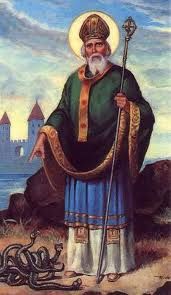This is your morning Open Thread. Pour your favorite beverage and review the past and comment on the future.
Find the past “On This Day in History” here.
March 20 is the 79th day of the year (80th in leap years) in the Gregorian calendar. There are 286 days remaining until the end of the year.
March 20th is also the usual date of the vernal equinox in the Northern Hemisphere, and the autumnal equinox in the Southern Hemisphere when both day and night are of equal length, therefore it is frequently the date of traditional Iranian holiday Norouz in many countries.
On this day in 1854, Republican Party is founded in Ripon Wisconsin.
The Republican Party emerged in 1854, growing out of a coalition of former Whigs and Free Soil Democrats who mobilized in opposition to the possibility of slavery extending into the new western territories. The new party put forward a vision of modernizing the United States-emphasizing free homesteads to farmers (“free soil”), banking, railroads, and industry. They vigorously argued that free-market labor was superior to slavery and the very foundation of civic virtue and true republicanism, this is the “Free Soil, Free Labor, Free Men” ideology. The Republicans absorbed the previous traditions of its members, most of whom had been Whigs; others had been Democrats or members of third parties (especially the Free Soil Party and the American Party or Know Nothings). Many Democrats who joined up were rewarded with governorships. or seats in the U.S. Senate or House of Representatives. Since its inception, its chief opposition has been the Democratic Party, but the amount of flow back and forth of prominent politicians between the two parties was quite high from 1854 to 1896.
Two small cities of the Yankee diaspora, Ripon, Wisconsin and Jackson, Michigan, claim to be the birthplace of the Republican Party (in other words, meetings held there were some of the first 1854 anti-Nebraska assemblies to call themselves by the name “Republican”). Ripon held the first county convention on March 20, 1854. Jackson held the first statewide convention on July 6, 1854; it declared their new party opposed to the expansion of slavery into new territories and selected a state-wide slate of candidates. The Midwest took the lead in forming state party tickets, while the eastern states lagged a year or so. There were no efforts to organize the party in the South, apart from a few areas adjacent to free states. The party initially had its base in the Northeast and Midwest. The party launched its first national convention in Pittsburgh, Pennsylvania, in February 1856, with its first national nominating convention held in the summer in Philadelphia, Pennsylvania.
John C. Fremont ran as the first Republican nominee for President in 1856, using the political slogan: “Free soil, free labor, free speech, free men, Fremont.” Although Fremont’s bid was unsuccessful, the party showed a strong base. It dominated in New England, New York and the northern Midwest, and had a strong presence in the rest of the North. It had almost no support in the South, where it was roundly denounced in 1856-60 as a divisive force that threatened civil war.
Historians have explored the ethnocultural foundations of the party, along the line that ethnic and religious groups set the moral standards for their members, who then carried those standards into politics. The churches also provided social networks that politicians used to sign up voters. The pietistic churches emphasized the duty of the Christian to purge sin from society. Sin took many forms-alcoholism, polygamy and slavery became special targets for the Republicans. The Yankees, who dominated New England, much of upstate New York, and much of the upper Midwest were the strongest supporters of the new party. This was especially true for the pietistic Congregationalists and Presbyterians among them and (during the war), the Methodists, along with Scandinavian Lutherans. The Quakers were a small tight-knit group that was heavily Republican. The liturgical churches (Roman Catholic, Episcopal, German Lutheran), by contrast, largely rejected the moralism of the Republican Party; most of their adherents voted Democratic.


 On this day in 1941, the 99th Pursuit Squadron also known as the
On this day in 1941, the 99th Pursuit Squadron also known as the  On this day in 1766, the
On this day in 1766, the  On this day in 461,
On this day in 461,  On this day in 1802,
On this day in 1802,  On this day in 1965, President Lyndon B. Johnson addressed a joint session of Congress
On this day in 1965, President Lyndon B. Johnson addressed a joint session of Congress  The
The  On this day in 1881.
On this day in 1881.  On this day in 1947,
On this day in 1947,
Recent Comments